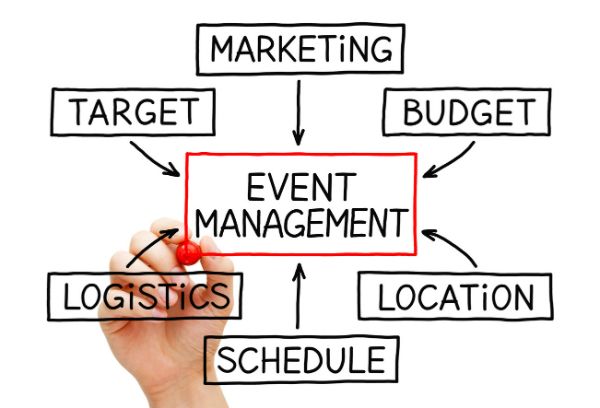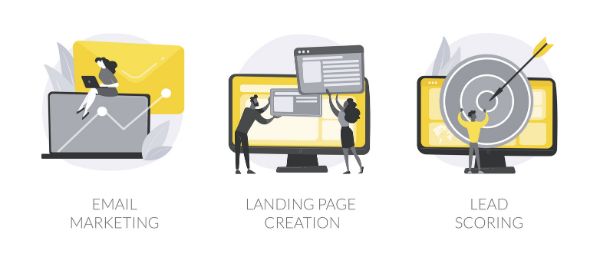When it comes to starting a new business endeavor, you need to make sure that you have a firm foundation to build upon. An event rental business plan is an essential document that you can refer back to as the company grows or shifts over time.
However, it is also a key piece of the puzzle if you are attempting to get a small business loan from the bank. You need to prove that your party and events rental business can turn a profit so that the lender can rest easy about their investment in you. With a party rental business plan in hand, you can make a great first impression.
Let’s look at the different sections your business plan should include:
Industry Overview
The foundation of your business plan begins with the industry overview. This overview doesn’t have to be a long section of your plan, but it should be enough to give lenders an idea of why your particular business could be profitable.
In this section, you will list specific statistics about the industry as a whole, revenue expectations, and growth percentages for your particular area.
Executive Summary
In your party tent rental business plan, you will want to have a small section for an executive summary. This key component of the business plan details why you want to start this business, a short biography about why you are the best person to run the company, and a brief description of the services you plan to provide.
Keep in mind that this is meant to be just a summary and does not need to be too lengthy. You may have the best success writing this section last. Once you have a firm idea of what else is included in the business plan, summarizing it should be simple.
Service List
If you want to make a great impression with your business plan, you need to have a clear idea of what services your company will provide. Most party and event rental companies offer tents and other items that are easily rented by customers. However, you may want to consider renting out additional items such as:
- Tablecloths, napkins, and other linens
- Centerpieces
- Tables and chairs
- Audio or visual equipment
- Lighting
In a tent rental business model, you might have an extensive list of equipment that you need to purchase to get your company off the ground. Make sure to thoroughly list all of the rental services you intend to offer to potential customers in this section of your business plan.
This list also gives the lender some idea of how much initial capital you will need to get the company off the ground.
Mission Statement and Vision
While the other parts of your event rental business plan are likely to be focused on the services and bottom line, you also need a clear idea of where your business is headed. Relaying your vision and mission statement clearly is essential. This section is the area where you will set long-term goals for the company.
Keep in mind that you are here to run a business, so this section can focus on the growth you hope to see in the market and how you can become a leader in the event and party rental industries.
Structure and Roles
Who is going to help you run your business? Even if you are the sole employee, you need to be very clear on what roles you will play within the company. You might be the CEO but also be in charge of the day-to-day operations. However, if your organization isn’t limited to just you, then you will need to define the roles within your company.
SWOT Analysis
The chances are that you have heard of the SWOT analysis before, even if you haven’t done one for your event rental business plan. It stands for strengths, weaknesses, opportunities, and threats. The primary goal of this section of the party rental business plan is to demonstrate how your company will fare in the marketplace.
Where will your business shine, and where will you face more struggles? It is a good idea to be as specific as possible about the strengths of your business. However, you may want to be a little vague about the potential weaknesses of the company. For example, you might cite more competition as the major weakness for your company.
Marketing Strategies
How will your business get in front of more people? There should be a dedicated section in your tent rental business plan about your marketing strategies.
In this section, you can include print materials or advertisements in local publications. You might also include the costs of creating a website, investing in search engine optimization, and paid social media advertisements.
Under this section, you should also identify who you are marketing to. Does your event rental business cater to party-planning professionals, wedding planners, or a unique section of the local population? Narrowing down who you are marketing to helps you to spend your advertising budget wisely.
Sales Forecast
When it comes to securing a loan for your tent rental business model, the lender wants to know how you plan to make money. If you haven’t yet opened the doors to your business, predicting this can be a bit of a challenge. You may have to base your sales forecast numbers on the industry averages for your local area.
Of course, your business will hopefully grow over the first years of operation. As a result, most business owners will want to include separate sections for their first, second, and even third year in business.
This segmented approach allows you to account for the initial investment in equipment such as tents and tables so that you can demonstrate how much more profit you will make in subsequent years of operation.
Pricing Strategy
Whether you have to purchase all new equipment or already own some of the materials, it is crucial to outline how your business will make money. Compare how much you will rent out your party supplies with how much of an investment you must make in them.
This section is also the place to sort out the details regarding additional fees you might charge and how deposits for your rentals will be handled.
Business Expenses
No business plan would be complete without a closer look at how much money you will spend on your expenses. This assessment can include the initial startup costs of purchasing tents, tables, and chairs. It also includes any month-to-month expenses such as storage rentals or operational costs such as rental management software.
Once you know what you expect to spend on your business, it can be easier to justify a business loan to the bank and prove that your events rental business will start to turn a profit quickly. Take your time filling out this section making sure that everything you need is included.

